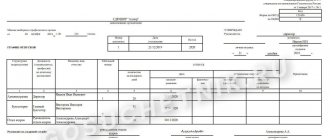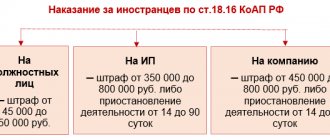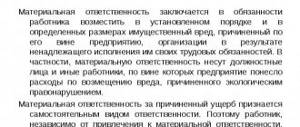Inspection of organizations operating transport
Having narrowed the task, let us turn to the provisions that apply to legal entities, individual entrepreneurs, state (budgetary), autonomous and other companies using vehicles. The labor inspectorate will check:
- A staff of employees responsible for the technical condition of the vehicle and road safety. Their qualifications in accordance with legal requirements (certification documents, training, management orders on appointment, their obligations, instructions, working and rest conditions, workplace safety, training logs, etc.).
- Organization of pre-trip and post-trip medical examinations. Does the procedure for medical examinations comply with the requirements of the law (licensing of medical activities, compliance of the medical worker with the required qualifications, equipment of the medical office, maintaining pre-trip (post-trip) logs in accordance with the standards established by the Ministry of Health of the Russian Federation).
Waybills.
Does the document meet the requirements of Order No. 152? Does the document have all the necessary details? They compare the data in the working time sheet with the actual one (according to entries in the letter). Is overtime paid for, does it comply with the requirements of the legislation of the Russian Federation, is the time spent on passing a technical medical examination included in working hours, etc. This is not a complete list of the scope of inspection of the labor inspectorate in relation to transport and non-transport organizations. To navigate what may be of interest to inspectors, you need to study: Appendix to the Resolution of the Ministry of Labor No. 28 (05/12/03); Order of the Ministry of Transport No. 15 (08/20/04); Federal Law No. 196; Federal Law No. 323; Order of the Ministry of Health No. 835n; and related regulatory documents.
Reasons for verification
The Inspectorate is empowered to carry out inspection activities. This applies to the following situations:
- if a citizen wrote a statement that the company’s management violated the provisions of labor legislation;
- when a complaint is written that workers' rights have been violated, for example, there is a delay or non-payment of wages, incorrect salary calculations are made, benefits are not paid or overtime work is not paid.
Also, violations may be due to the fact that the company’s management refuses to draw up an agreement, incorrect execution of the employment contract, which is expressed in a violation of the employee’s powers. In this act, the actual working conditions may not comply with the provisions of the Labor Code of the Russian Federation.
Wide range of interests of the Labor Inspectorate
The sphere of interests of the labor inspectorate includes standards not only related to labor, but also to other supervisory authorities. By violating the requirements of the State Transport Supervision Service, the requirements of the labor law are necessarily not fulfilled at the same time. The safety of people working with transport, a source of increased danger, is within the scope of interests of labor inspectors.
Cross-sectoral rules cover a wide area of interest of the inspectorate. It is impossible to foresee everything; finding a violation will not be difficult. One thing is reassuring: most often the punishment, if the case comes to trial in court, will be the same for all identified miscalculations, but the maximum. Although a fine for a combination of violations cannot be ruled out (read below).
More materials on the topic
Remote work: actions to formalize labor relations and electronic document management
07.12.18
Why does the labor inspectorate check waybills?
The law of the Russian Federation provides for standards of working time and rest for employees. Inspectors pay special attention to this issue, since violations can always be found here. The work of drivers does not fit into the standards of ordinary employees: from now to now. The travel schedule must be organized in accordance with Order of the Ministry of Transport No. 15 (on the peculiarities of the working hours of drivers). Waybills are checked to ensure that the time counted as working time corresponds to the time sheet. Discrepancies with the specified time, including the technical preparation of the vehicle and the period spent undergoing a pre-trip medical examination, are considered a gross violation.
The regulations regulate the accounting rules and the driver’s work schedule, which he must familiarize himself with. The work regime according to the standards, developed in accordance with the Regulations, must be carried out by both managers and subordinates.
The inspectorate verifies the actual working hours of drivers
The standard lists all periods of time that must be counted as working hours and, accordingly, paid by the employer. The inspectors learn about the many hours of overtime before they begin the inspection by first interviewing the drivers about their travel schedule (without introducing themselves as auditors).
There are several similar periods listed in the Regulations and all of them must be counted as working time. The accountant needs to check whether the data on the waybill coincides with the accounting report card. The labor inspectorate will not miss this information.
Check period
The legislation describes the period during which inspection staff carry out inspection activities. It is equal to 20 days. It is worth considering that there are some exceptions to this rule. They are classified as companies with a small number of staff. In this case, the inspection period is 50 hours. If we are talking about a micro-enterprise, then the period is 15 hours.
It is important to note that these exceptions do not apply to unscheduled on-site inspections. For its production, regardless of the company, a general period not exceeding 20 days applies. Only working days are taken into account.
If the organization has branches, then the inspection period is determined for each division separately. However, the total duration of the inspection cannot be more than 60 days. If the need arises, you can extend the specified period of time, but not more than 20 days. For enterprises with a small number of employees – no more than 15 hours.
The period for conducting an unscheduled and documentary inspection cannot be extended.
Mechanic's mark on the waybill
Based on the same Regulations, the vehicle’s technical condition control mark is checked before leaving the garage (parking lot). According to Order No. 152, the waybill must contain the signature of the mechanic, a stamp confirming the serviceability of the car, and the date and time of departure to the line. This is a mandatory document detail confirming control over the vehicle entering the road in good order.
In addition to the mark in the letter, the signatures of the controller and the driver must appear in the logbook of vehicles leaving for the trip. The driver is given traffic safety instruction by the person responsible for this. The inspection will check the qualifications of officials (documents on advanced training), orders (contracts) and management instructions on the appointment and responsibilities of workers who are responsible for safety both in the workplace (garage) and along the route of transport.
Fine 115 thousand for lack of pre-trip inspection
In Saratov, the regional court considered case No. 21-62/2017. LLC was brought to administrative responsibility for the lack of medical examinations of employees, including pre-departure ones. The company believed that, not being a transport organization, they were not obliged to comply with the requirements for passing pre-trip medical examinations. Despite the fact that they used cars on the organization’s balance sheet for business and personal purposes. The company tried to prove that they should not bear administrative liability under Art. 5.27.1 part 3 of the Code of Administrative Offenses, since the Labor Inspectorate (which filed a lawsuit against them) does not have the right to charge a violation of the lack of pre-trip inspections. According to the company, the competence of the inspectors (GIT) does not include this type of violation, since it does not concern labor rights. The judge did not agree with the Company's arguments and supported the side of the Labor Inspectorate.
Violations brought against TI:
1. The company allowed an employee to perform duties without providing instructions, training, or certification of knowledge in accordance with labor safety standards.
2. Medical examinations (upon hiring, periodic, mandatory, pre-deployment) were not carried out.
3. There were no documents about the examination of employees by a psychiatrist. While performing the duties of drivers, workers were not examined for contraindications to driving vehicles. We made not only personal, but also business trips.
The judge agreed with Art. 22 of the Labor Code. The head of any institution is obliged to comply with norms and legal acts, rights and clauses of the employment agreement, involving employees in the performance of official affairs. In this regard, a fine was imposed:
- officials - from 15 to 25 thousand rubles;
- Individual entrepreneur without forming a legal entity – from 15 to 25 thousand rubles;
- legal entities - from 110 to 130 thousand rubles. The employer's responsibilities in this case take up a lot of space. We present only the articles that are violated in the organization:
- Article 76; 212; 213; 225 TK.
- Article 419 of the Labor Code (provides, among other things, for criminal liability).
- Order of the Ministry of Health No. 835n.
- Federal Law No. 196; No. 323, etc.
The decision made by the labor inspector was fully upheld in court proceedings. Fine in the amount of 115 thousand rubles. The LLC will have to pay.
News 2021 in Labor Policy
Scheduled inspections carried out by the Labor Inspectorate have undergone changes since March 2017. For some organizations, their possibility is practically reduced to zero; for others, the frequency of audits may become more frequent. Everything will depend on the risk assessment of the organization’s activities. On the websites of the prosecutor's office and the TI, lists of those companies that have the highest and average risk scores are freely available.
Anyone can familiarize themselves with the list and understand whether in 2018 they should worry about the upcoming inspection by the Labor Inspectorate. As judicial practice shows, most often those organizations that believe that the rules have not yet been written for them are held accountable. See the Saratov case. In this regard, take care:
1. On the organization of pre-trip medical examinations of drivers and employees who perform official duties in this role.
2. So that the company operating the vehicle has an employee responsible for traffic safety and the technical condition of the vehicle (this may be the driver himself). 3. About risks: how necessary are waybills for keeping records of fuel and lubricants. Will they (or lack thereof) satisfy the tax inspectorate?
We recommend that you pay attention (if you find yourself on the list for inspection) to Order of the Ministry of Health No. 835n; MT No. 141; Federal Law No. 152; No. 259; No. 402; No. 196; Government Decree No. 291. This applies to all companies that have cars on their balance sheet, and not just those that provide transportation services.
Scheduled and unscheduled inspections: what's the difference?
A scheduled inspection is carried out on the basis of a plan. It is regular and is carried out regardless of whether there are complaints against the company. This is a comprehensive procedure during which all aspects of the company's activities are checked.
An unscheduled inspection usually has certain grounds: complaints from workers, suspicion of illegal actions. The procedure is carried out regardless of when the previous planned event was carried out.
Grounds for scheduled and unscheduled inspections
The grounds for conducting an inspection are set out in Article 360 of the Labor Code of the Russian Federation. An unscheduled event is carried out under the following circumstances:
- The deadline for executing the order to eliminate the offense issued earlier has expired.
- The labor inspectorate received complaints against the employer from employees.
- There is information that the employer is violating the norms of the Labor Code of the Russian Federation.
- The labor inspectorate received a request from a worker to check working conditions in the company.
- A corresponding order was issued from the head of the inspection, issued on the basis of requests from the prosecutor and instructions from the Government.
Scheduled inspections are carried out every 3 years. The basis for its holding is the expiration of 36 months from the date:
- implementation of the last planned event;
- registration of individual entrepreneur or legal entity;
- Submitting an individual entrepreneur or legal entity notification of the start of work.
ATTENTION! The schedule of scheduled inspections is posted in advance on the website of the Prosecutor General's Office.
Is it necessary to undergo a medical examination?
With organizations that have a large fleet of vehicles, everything is clear and understandable. Federal Law No. 196 (Article 20; Clause 1) leaves no doubt - every driver is required to undergo a medical examination before going on the line. The question arises only among managers of companies that do not provide transport services, but use cars for business and personal purposes. The labor inspectorate and judges view this differently.
Situation No. 1.
The employee is listed as a driver. As judicial practice shows, he must undergo a pre-trip medical examination. The TI and the judges were unanimous in this decision.
Situation No. 2.
The employee is not a driver, but travels in a company car in the interests of the employer. Some courts, as well as the employer, believe that the provision of transportation is a benefit and not an obligation of the employee.
Situation No. 3.
The employee travels on official business in the performance of his or her duties. He is not listed as a driver, but he is provided with a vehicle for work. In this case, management is responsible for road safety and is obliged to organize a medical examination before the shift. The courts and the TI look at this situation unequivocally.
Note:
The methods for calculating the amount of the fine vary by region. There are cases where administrative penalties are imposed depending on the state of drivers. For example, there are 10 people in a company. For anyone who fails to pass the pre-trip medical examination, a minimum fine of 110 thousand rubles is imposed. The total will be 1 million 100 thousand rubles. In other courts, a fine is imposed only for the lack of medical examinations (regardless of the number of drivers) - from 110 to 130 thousand per legal entity.
Checking salary payments
Labor inspectorate employees check issues related to the calculation and payment of wages. The law states that payments must be made at least a couple of times a month. The documentation used within the company provides information regarding when and where funds are issued. In addition, an important point is that the amount of earnings is no less than the maximum value for the region.
In a situation where the company’s management pays bonuses or allowances to employees, it is necessary to document such accruals. Citizens who are dismissed from the state must be paid specific amounts. They are defined by law.
Information related to labor protection is also subject to verification. The company's management has a responsibility to create safe conditions for a person to perform work functions. This fact can be confirmed by using instructions or papers indicating the implementation of appropriate activities. The specified type of papers must be in the company, regardless of how many people work in it and how many people are employed.
How to avoid undergoing a medical examination?
There is an opportunity to avoid a medical examination - this is Situation No. 2. In some cases, indeed, a car is provided to an employee, not as a means of performing duties, but as a benefit (bonus), so as not to waste time on public transport. To do this, you need to obtain documents that show that:
- The employee’s duties do not include transportation, delivery of goods, provision of services, etc.
- The use of the vehicle is not an obligation for this person.
- The employee’s workplace, according to the employment contract, is not a car.
- The agreement on the use of the vehicle states that it is provided to the employee for business and personal trips, as a benefit.
If you can provide evidence that this is the case, the write-off of fuel and lubricants is carried out on the basis of acts or other primary documents, then it is possible (although not 100%) to use the car without a medical examination. As evidenced by judicial practice (especially in the central regions of the Russian Federation). As evidenced by judicial practice (especially in the central regions of the Russian Federation). If an accident occurs, prepare for a strict inspection by supervisory authorities. It is also worth knowing about the tax authorities’ inspection of pre-trip inspections.
Conditions for terminating a GIT inspection
The employer may, on its own initiative, stop the inspection. To do this, you need to send an application to the State Tax Inspectorate (clause 27 of the Regulations). For example, an inspection should be stopped if, during its conduct and organization, the inspector committed gross violations.
Such violations may include failure to comply with notification deadlines. If the State Tax Inspectorate reported the inspection less than three days in advance (clause 53 of the Regulations), then its results will not be valid (Article 20 of Law No. 294-FZ). If a violation check is already occurring, it should be stopped.
Another significant reason for termination may be the anonymity of the appeal, which was the reason for the commission’s arrival. If the information in the appeal is deliberately false, the check should also be stopped (clauses 27 and 104 of the Regulations, article 10 of Law No. 294-FZ).
How is a completed medical examination confirmed?
In addition to the doctor’s stamp on the waybill, inspectors can request a log of pre-trip inspections, which is filled out in the pre-trip inspection office, an agreement, a license to provide services, certificates of work performed and paid for. Then the reality of drivers (employees) undergoing a medical examination will be confirmed.









